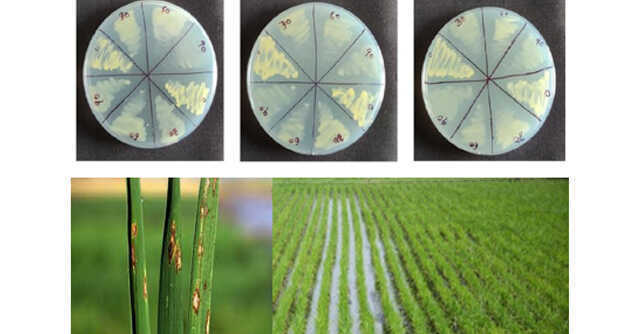Researchers at the Indian Institute of Technology (IIT) Kanpur have created a biodegradable nanoparticle that can be used as an alternative to chemical-based insecticides to protect crops from bacterial and fungal illnesses. Abhay Karandikar, who is the director of IIT Kanpur said that because farmers suffer a variety of issues, IIT Kanpur has worked tirelessly to improve the farming environment as a whole. Nanoparticles would reduce the risk of crop infection while also increasing agricultural productivity.
KEY POINTS:
- The nanoparticle, dubbed Biodegradable Carbonoid Metabolite (BioDCM), can be active at low concentrations and be as effective as pesticides while having no detrimental effects on soil or consumer health. It operates quickly because it is administered in bioactive form and can resist high temperatures.
- The nanoparticle was produced in collaboration with C. Kannan and D. Mishra of ICAR-Indian Institute of Rice Research, and also with R Balamurugan and M. Mandal of the Hyderabad University’s School of Chemistry.
- Given the nanoparticle developed by IIT Kanpur’s biodegradable and non-harmful nature, it is likely to attract a lot of interest from farmers looking to reduce their use of chemicals in farming, particularly pesticides.
PROBLEMS FACED:
- According to a report released by the United Nations’ Food and Agriculture Organization (FAO) in June 2021, farmers around the world lose up to 40% of their crops to insects and illnesses each year, resulting in a $290 billion loss to the global economy.
- Natural ingredients are increasingly being used in organic farming and exporting goods.
NOTE:
- IIT Kanpur has devised a number of ways to increase agricultural output and address many of the issues that plague Indian agriculture.
- In December 2021, the institute released Bhu Parikshak, a soil testing equipment that can detect soil health in 90 seconds. It was created to address the issue of time spent having solid health examined in labs. In most cases, farmers must wait days for lab results.



 Indian Olympic Medal Winners List Till N...
Indian Olympic Medal Winners List Till N...
 Who is the Inventor of the Gramophone?
Who is the Inventor of the Gramophone?
 HS Dhaliwal Appointed New DGP Of Andaman...
HS Dhaliwal Appointed New DGP Of Andaman...
